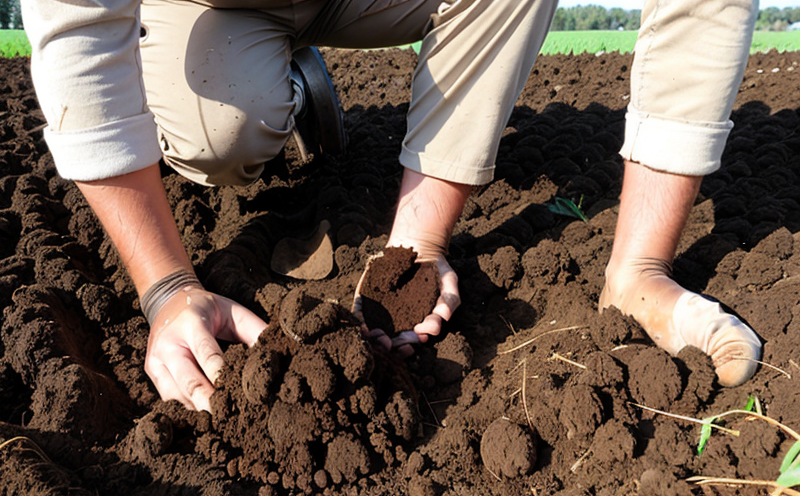Soil pH Level Testing
In agriculture and forestry, soil quality is a critical factor that impacts plant growth, nutrient availability, and overall productivity. Soil pH plays a pivotal role in determining the chemical behavior of the soil, affecting nutrient solubility, microbial activity, and root uptake efficiency. The ideal pH range for most crops typically falls between 6.0 to 7.5, with variations depending on specific crop types.
Understanding and managing soil pH is essential for optimizing plant growth and yield while minimizing environmental impact. Soil pH testing provides a precise measure of the acidity or alkalinity of the soil. This information is vital for nutrient management, irrigation planning, and fertilizer application decisions. Accurate soil pH data helps in selecting appropriate crops, optimizing input costs, and enhancing overall farm sustainability.
Our laboratory utilizes advanced technologies to conduct soil pH testing that complies with international standards such as ISO 17244:2018 for soil analysis. We employ standardized methods to ensure reliable and repeatable results. The testing process involves collecting representative samples from the field, preparing them in a controlled environment, and then using precision instruments to measure the pH level.
The significance of soil pH is underscored by its influence on the availability of essential nutrients like phosphorus (P), potassium (K), calcium (Ca), magnesium (Mg), iron (Fe), manganese (Mn), zinc (Zn), and others. A pH that deviates too far from the optimal range can lead to nutrient deficiencies or toxicities, affecting crop health and yield. For instance, a low pH (acidic) soil may reduce the availability of calcium and magnesium while increasing the solubility of aluminum and manganese, which can be harmful to plants.
In contrast, high pH (alkaline) soils can limit iron, zinc, and manganese availability. This imbalance necessitates careful monitoring and corrective measures such as lime application for acidic soils or sulfur addition for alkaline soils. Soil pH testing is a fundamental step in developing effective soil management strategies that enhance agricultural productivity while protecting the environment.
| Parameter | Description | Acceptance Criteria |
|---|---|---|
| Sample Preparation | Soil samples are air-dried, ground to pass through a 2 mm sieve, and mixed thoroughly. | Representative of the field area being tested. |
| Buffer Solutions | Pure water or specific buffer solutions (pH 4.0, 7.0) are used depending on the soil type. | Water: pH of 6.8 ± 0.2; Buffer solutions: pH within ±0.1 units of standard values. |
| Precision Instrument | pH meter with a glass electrode and temperature compensation. | Accuracy to ±0.1 pH unit. |
Quality and Reliability Assurance
We ensure the highest quality in our soil pH testing services through rigorous quality control measures that align with international standards. Our laboratory adheres to ISO 17845:2018 for precision of methods for determination of pH of soils, ensuring consistent and accurate results. Our team is composed of certified professionals who follow strict protocols throughout the entire process.
Data accuracy is paramount in soil testing; thus, we employ multiple checks such as replicate analyses to validate each measurement. Calibration of instruments using certified reference materials (CRMs) is performed regularly to maintain precision and reliability. Additionally, we conduct inter-laboratory comparisons with other accredited laboratories to ensure our methodologies are consistent across different geographical locations.
Our commitment to quality extends beyond technical accuracy. We provide comprehensive reports that include detailed descriptions of the testing process, observed results, and recommendations for corrective actions if necessary. These reports not only serve as valuable tools for decision-making but also comply with regulatory requirements ensuring compliance with relevant agricultural standards like EC 183/2005.
Customer satisfaction is our top priority. We offer quick turnaround times with real-time updates on the status of samples, ensuring that you receive your results promptly. Our experienced team can assist in interpreting these results and providing actionable insights to improve soil quality and crop health.
International Acceptance and Recognition
The importance of soil pH testing is widely recognized globally, with many countries adopting international standards for ensuring the accuracy and reliability of such tests. ISO 17845:2018 is one of the most respected standards that governs the precision of methods used to determine the pH of soils.
Our soil pH testing services are recognized by numerous governmental bodies, regulatory agencies, and industry associations worldwide. Compliance with these international standards ensures that our results are accepted across various sectors including agriculture, forestry, horticulture, environmental management, and research institutions.
By adhering to these stringent guidelines, we not only meet the demands of global markets but also contribute to sustainable practices in soil management. Our laboratory’s certifications and accreditations include ISO/IEC 17025:2017 for testing laboratories, which is a testament to our commitment to excellence.
The acceptance of our results by international bodies enhances trust among stakeholders involved in agricultural production and environmental conservation efforts. This global recognition facilitates seamless collaboration between countries and regions, promoting best practices in soil health management.





